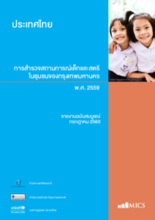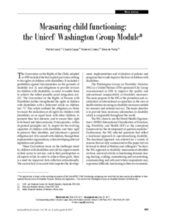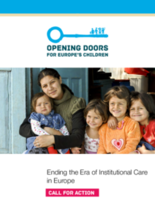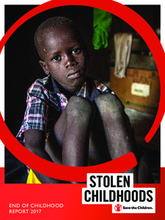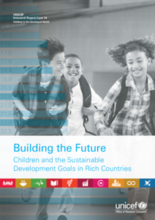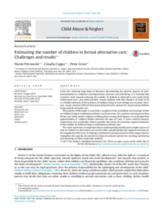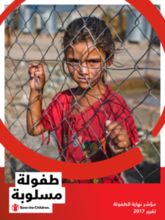Displaying 171 - 180 of 558
This survey provides a unique source of data and information, covering more than 80 indicators in the areas of nutrition, child health, water and sanitation, reproductive health, child development, literacy and education, child protection and HIV/AIDS.
This special note describes the development of a joint question module for the Multiple Indicator Cluster Survey (MICS), developed by the Washington Group on Disability Statistics (WG) and UNICEF, to measure data on child disability.
This presentation was given by Florence Martin of Better Care Network at the 6th International Conference of the International Society for Child Indicators in Montreal, Canada in June 2017.
The 2017 KIDS COUNT Data Book urges policymakers not to back away from targeted investments that help U.S. children become healthier, more likely to complete high school and better positioned to contribute to the nation’s economy as adults.
In this Call to Action, Opening Doors for Europe's Children presents three key demands to the European Union to promote the prioritisation and funding of deinstitutionalisation in the next Multiannual Financial Framework (MFF).
Every child deserves a childhood of love, care and protection so they can develop to their full potential, but this is not the experience for at least a quarter of our children worldwide. This new report – the first in an annual series – takes a hard look at the events that rob children of their childhoods.
This Report Card offers an assessment of child well-being in the context of sustainable development across 41 countries of the European Union (EU) and the Organisation for Economic Co-operation and Development (OECD).
Produced by UNICEF, this article provides an estimate of the number of children living in institutional care worldwide.
Every child deserves a childhood of love, care and protection so they can develop to their full potential, but this is not the experience for at least a quarter of our children worldwide. This new report – the first in an annual series – takes a hard look at the events that rob children of their childhoods.
This paper highlights some of the challenges of reforming child care policy and offers recommendations to advance the political priority of care reform at the national level.

